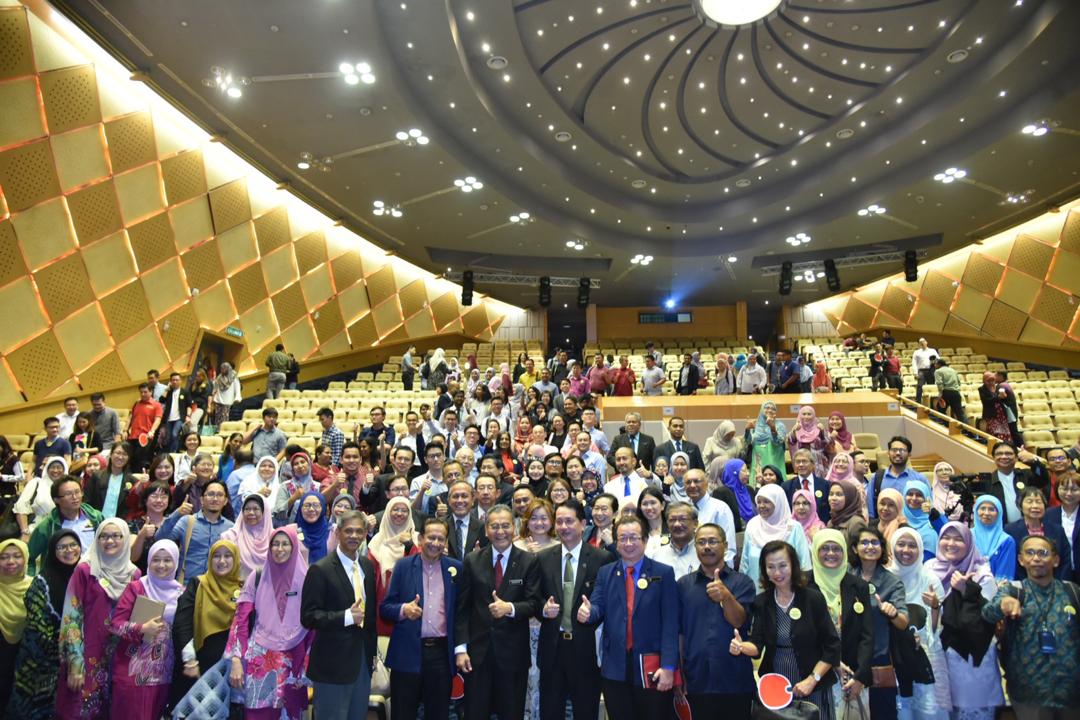KUALA LUMPUR, August 9 — Pharmacists want to be allowed to charge professional consultation fees and for doctors to always issue prescriptions so that patients can get medicines from pharmacies.
Malaysian Community Pharmacy Guild president Lovy Beh said pharmacists did more than dispense drugs, such as reviewing medicine use, providing cataract finder services, and conducting smoking cessation and weight management programmes, among others.
“All these services require additional skills and knowledge. We spend minimum 30 minutes to an hour per each service rendered.
“Therefore, we believe there should be at least a minimum charge of RM30 to RM50, which is reasonable for those services,” Beh told a Health Ministry town hall meeting with pharmacists in Putrajaya yesterday.
She pointed out that private clinic general practitioners (GPs) are asking for their consultation fees to be harmonised with their hospital-based counterparts who charge RM30 to RM125, while lawyers and plumbers get to charge even higher rates.
“For us, unfortunately, there has never been any professional fees scheduled for pharmacists. Therefore it’s time to implement pharmacists’ professional consultation fees,” Beh said.
Malaysian Pharmaceutical Society president Amrahi Buang similarly called for legislation to enforce pharmacists’ consultation fees.
“We are a professional. Datuk Seri says we also are medicine experts,” Amrahi told the town hall, referring to Health Minister Dzulkefly Ahmad.
Amrahi also called for a review of the current government policy that mandates prescriptions only upon patients’ request, rather than a blanket rule, citing 2018 statistics by the Medication Error Reporting System (MERS) under the Health Ministry that found about 72 per cent of medication errors occurred during the prescribing process, of which about 93 per cent was reported by pharmacists.
“Just give the prescription to the patient and patients have a choice to get it from the clinic or from the [pharmacy],” he said. “I don’t think it’s something difficult.”
“The Human Rights Commission, they say prescription is the right of the ‘rakyat’ and we have to give to the ‘rakyat’ without the ‘rakyat’ asking for the prescription.”
Amrahi further called for legal amendments to allow the election of a Director-General of Pharmacy and to change the Malaysian Pharmacy Board, which is chaired by the Health DG who is usually a medical doctor, to a Malaysian Pharmacy Council headed by a pharmacist.
“We want pharmacists to carry the voice of the pharmacists’ profession in this country,” he said, pointing out that Indonesia also has a DG of Pharmacy.
Drug Price Controls
On the Health Ministry’s proposal to regulate drug prices, Beh said this could only be done if Malaysia had universal health coverage and separation of prescribing and dispensing medicines.
“Or else patients will no longer need to seek to buy their drugs from community pharmacists if they can get it for the same price at clinics and private hospitals, and it’s more convenient for them,” she said.
“Community pharmacists are already operating with very thin margins with no professional or dispensing fees. Therefore, most have resorted to selling non-medicine items, such as cosmetics, personal care, snacks and ice cream, in order to continue to operate. This is extremely sad as I do not think we studied so hard to get our degree just to sell non-medicines.”
Lovy Beh, Malaysian Community Pharmacy Guild president
Sabah Pharmaceutical Society president Jemima Ho, however, called for both floor and ceiling prices in the sale of medicines.
She related how 48 community pharmacists in Kota Kinabalu, in the past four years, agreed on minimum prices for Group C medicines, which are drugs that can be dispensed by pharmacists without a doctor’s prescription.
“It was deemed successful. Every patient that walks into a community pharmacy will have price about the same,” Ho told the town hall.
“It was a very happy four years, until a non-local pharmacy chain came in and disrupted the equilibrium,” she said, highlighting customers who got “confused” by the price differences and who mistakenly believed that community pharmacies were profiting off them.
Ho stressed that pharmacists in Sabah and Sarawak suffered higher business costs than their peninsular counterparts.
“By setting up a minimum selling price, it’ll help with stability of business and profession.”
Bumiputera Pharmacists Association Malaysia president Rahman Baco said his association has done projects at Kota Baru, Kelantan, like enabling patients with repeat prescriptions to collect their medicines at community pharmacies instead of at congested government hospitals.
“We have several integration projects, like delivering medicines to patients’ homes,” Rahman told the town hall.
“This has been done at government health clinics. It can be done more effectively at nearest community pharmacies. So we suggest a task force or a committee that involves representatives from government hospitals and community pharmacies to together discuss a tracking mechanism and remuneration system.”
Dzulkefly told reporters after the town hall that mandatory prescriptions upon request was the current government policy.
“With health financing reform, I’m sure we can resolve this,” the health minister said, without elaborating further on how a single-payer health system would look like.
Pharmaceutical enforcement division director Tan Ann Ling, who was also at the press conference, said making prescriptions mandatory across the board, whether or not patients request for it, requires an amendment to the Poisons Act 1952.
But Dzulkefly said the tabling of the mandatory prescription Bill depends on when the Attorney-General’s Chambers returns it to the Health Ministry.








